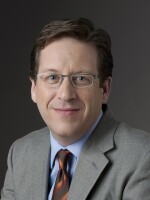RENEE MONTAGNE, HOST:
Let's hear now about a proposed solar power project in Nevada, which would be so big it will generate more electricity each year than the Hoover Dam. NPR's Jeff Brady reports this solar power plant also could generate electricity after the sun goes down.
JEFF BRADY, BYLINE: We all want electricity when we want it. That's a problem with most renewable energy. You can only generate power when the wind blows and the sun shines. SolarReserve CEO Kevin Smith says the solution is to store that energy.
KEVIN SMITH: It's really the ability to provide renewable energy that's available on-demand, you know, 24 hours a day.
BRADY: His company does that at a facility three hours northwest of Las Vegas. A tower rises out of the desert. It's surrounded by mirrors and concentric circles nearly two miles across. They focus the sun's heat on the top of that tower, which glows. That's where molten salt is heated to over 1000 degrees. The salt is stored. Then, at nighttime, it can be used to make steam to power a generator. Smith's company has one tower now. He wants to build 10 more at a cost of $5 billion.
SMITH: We have two sites that we've been focusing on.
BRADY: He won't say where yet, except that it'll be on public land in Nevada. That upsets a few environmentalists, like Janine Blaeloch.
JANINE BLAELOCH: It transforms habitat and public lands into permanent industrial zones.
SMITH: Blaeloch co-founded the group Solar Done Right, and she thinks it's better to put solar closer to where people live. But a big project like this needs more room than is available in most urban areas. SolarReserve's first plant got started with a $737 million federal loan guarantee. It's the same program that lost money when solar panel company Solyndra went bankrupt. In this case, the program worked as intended. Department of Energy deputy secretary Elizabeth Sherwood-Randall says, to advance renewable energy, you have to take risks.
ELIZABETH SHERWOOD-RANDALL: Not every new technology works. Some of them fail. But if you don't try hard things, you don't innovate.
BRADY: Overall, that loan program has recovered from the earlier losses, and it's in the black again. Jeff Brady, NPR News. Transcript provided by NPR, Copyright NPR.








